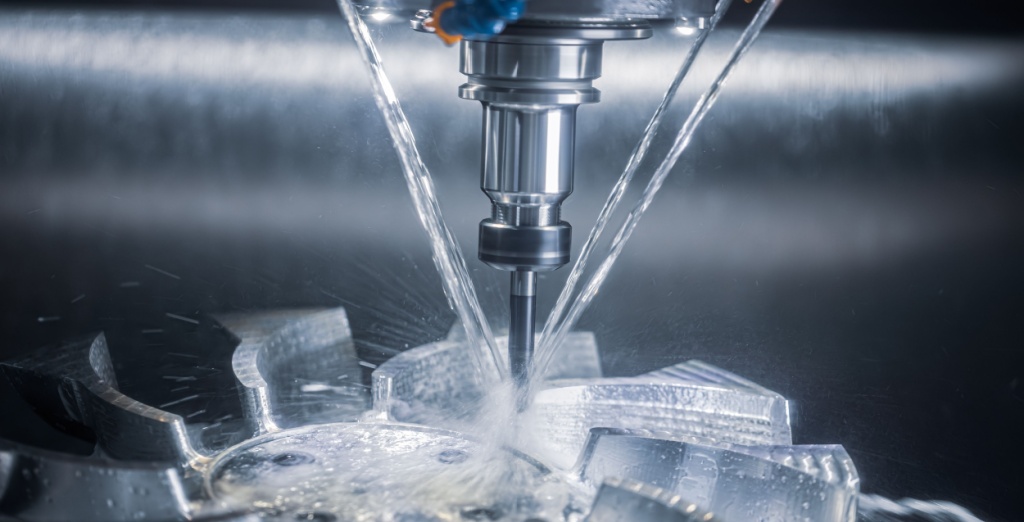Medical device manufacturing depends on cutting-edge materials to enhance safety, durability, and performance with the help of advanced medical materials for device production. From implants to surgical tools, selecting the right materials ensures biocompatibility, precision, and longevity. As the medical industry advances, so does the demand for high-quality instruments, components, and equipment. Meeting strict regulatory standards and operational needs requires expert precision—CNC specialists like Roberson Machine Company deliver advanced material manufacturing for hospitals, laboratories, prototyping, robotics, and other critical sectors.
The importance of advanced materials in the medical device manufacturing industry can’t be understated. Below, we’ll discuss:
- Applications of advanced materials in the medical field.
- The types of materials used in medical device manufacturing.
- Compliance and regulatory standards for production.
- How Roberson can help with your next project.
For more than 20 years, our medical device contract manufacturing experts have helped innovate alongside the medical industry using best-in-practice materials to produce next-level medical devices. Contact our team today or call 573-646-3996 to learn more.
Applications for Using Advanced Materials in Medical Device Production
Advanced materials enable the production of highly specialized medical components that enhance patient care and treatment efficiency. Key applications include:
- Sterile, Contamination-Resistant Components: Stainless steel and medical-grade polymers (plastics) prevent contamination in surgical and diagnostic equipment.
- Durable Implant Materials: Titanium and cobalt-chrome alloys ensure long-term reliability for heart stents, joint replacements, dental implants, and bone screws.
- Precision Surgical Tools: CNC-machined stainless steel and ceramic instruments maintain sharpness and resist wear.
- Lightweight Diagnostic and Robotic Components: Aluminum alloys and high-strength polymers reduce weight while maintaining structural integrity in imaging and robotic-assisted surgeries.
- Bioresorbable Implants: Advanced polymers like PLA and PGA safely dissolve in the body, eliminating the need for removal surgeries.
- Custom Machined Nozzles and Fillers: Critical for precise liquid medication dispensing and filling vials in pharmaceutical automation.
- Precision-Crafted Tablet Press Components: Essential for maintaining consistent pill sizes and dosage accuracy in pharmaceutical manufacturing.
From the screws in your teeth to respirator components, advanced materials are a mainstay in the medical industry. Contact us to learn more.
Key Materials Used in Medical Device Manufacturing
Read on to get an overview of materials used in the medical production process. Note that many of these materials are used to create specific parts that have a role in a device’s overall capabilities.
Titanium and Stainless Steel
Titanium and stainless steel are widely used in medical devices due to their biocompatibility, corrosion resistance, and durability. These materials are essential for implants, surgical tools, and orthopedic devices, as they can withstand repeated sterilization without degrading.
Titanium is favored for joint replacements, dental implants, and bone plates because of its high strength and lightweight properties. Stainless steel, on the other hand, is commonly found in surgical instruments, medical fasteners, and robotic components, offering exceptional strength and resistance to sterilization processes.
PTFE and PEEK Plastics
Medical-grade plastics like PTFE (Teflon) and PEEK (polyether ether ketone) are valued for their chemical resistance, low friction, and non-reactivity.
PTFE is commonly used in catheter tubing, seals, and gaskets due to its non-stick properties and resistance to bodily fluids, while PEEK is a high-performance polymer found in spinal implants and orthopedic devices for its exceptional mechanical strength and biocompatibility.
Aluminum Alloys
Aluminum alloys are essential in diagnostic equipment and robotic-assisted surgery due to their lightweight strength and precision. Their use reduces mechanical wear while maintaining durability in high-performance medical applications.
Cobalt-Chrome Alloys
Cobalt-chrome alloys are commonly used in orthopedic and dental implants for their exceptional wear resistance and mechanical strength. These materials enhance the longevity of joint replacements (knees, hips, shoulders, etc.) and other load-bearing medical devices.
Bioresorbable Polymers
Polylactic acid (PLA) and polyglycolic acid (PGA) are commonly used in temporary implants and surgical sutures. These materials gradually dissolve, eliminating the need for removal procedures and making them ideal for dissolvable stitches.
Regulatory and Quality Considerations
The use of advanced materials in medical manufacturing requires strict adherence to regulatory and quality standards to ensure both safety and effectiveness. FDA regulations govern classification, premarket approval, and ongoing quality system compliance to ensure products meet federal standards.
Advanced materials used for medical devices rely on expert-level machining to be useful in modern-day medicine. This includes parts and equipment that are precise, safe, and accountable.
Medical device materials must also undergo rigorous sterilization processes, including autoclaving, gamma irradiation, and ethylene oxide sterilization, to maintain safety and biocompatibility.
Adhering to these regulatory requirements is crucial for producing high-quality, reliable medical devices. Contact our precision machining experts today to learn more about our capabilities.
Why Choose Roberson Machine Company for Medical Device Manufacturing?
At Roberson Machine Company, we specialize in precision CNC machining for the medical industry, utilizing advanced materials to create high-performance components. Our expertise in machining titanium, stainless steel, PEEK, and other medical-grade materials ensures that our clients receive superior-quality parts that meet the highest industry standards.
A few of our services include:
Whether you need prototypes, high-volume production, or specialty components, we have the expertise to deliver. Contact us today at 573-646-3996 or reach out online to discuss your medical manufacturing needs.





